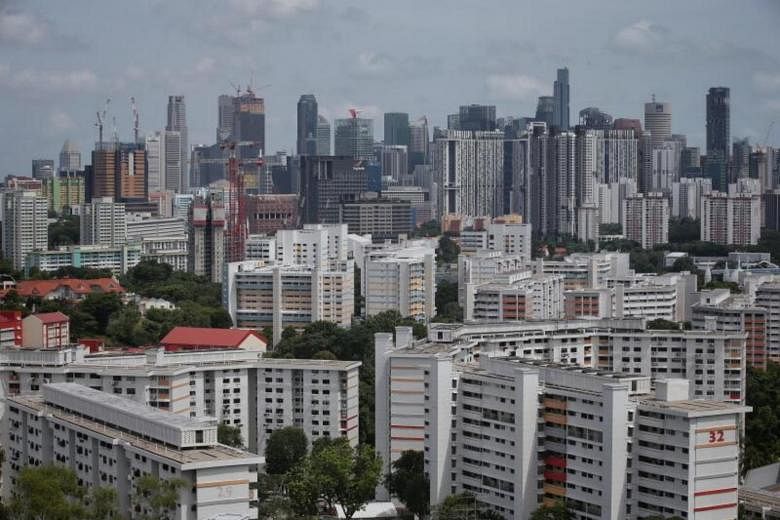SINGAPORE - Talk of another round of property cooling measures has intensified in the wake of recent ministerial remarks that the government is keeping a close watch on the market, which has so far defied the pandemic-induced recession.
This comes as URA flash estimates showed private home prices rose 2.1 per cent for the fourth quarter - the steepest quarterly increase since second quarter 2018 when they jumped 3.4 per cent before property cooling measures hit in July that year. This is despite Singapore's economy appearing on track to shrink 6 per cent for 2020 and unemployment hitting 3.6 per cent in Q3 compared with 2.3 per cent a year ago.
Strong sales at Normanton Park, the largest and first new launch this year with close to one-third of its 1,862 units sold - were cited as another factor.
But some analysts believe that it is premature for more cooling measures to be implemented at this point.
Precipitating the July 2018 round of cooling measures were four consecutive quarters of price increases totalling 9.1 per cent as well as higher than expected Government Land Sales bids and record-high collective sale bids.
In comparison, private home prices are up 2.2 per cent for 2020. "GLS land bids were in line or lower than expected, although the number of bids is increasing. And collective sales are still nascent, with just four smallish ones in 2020," noted Ms Tricia Song, Colliers International's research head for Singapore.
"We believe the government will wait out a few quarters and monitor prices. In the meantime, it is sending out messages that buyers should be prudent and that prices should not continue to move up significantly before an actual economic pickup," said Ms Song.
Deputy Prime Minister and Finance Minister Heng Swee Keat said on Monday (Jan 18) that the government is paying "close attention" to the local real estate market "to ensure that it remains stable". As the economic outlook remains very uncertain, he added that "we do not want to see the property market run ahead of the underlying economic fundamentals."
Mr Heng's comments at the Real Estate Developers' Association of Singapore (Redas) came hours after National Development Minister Desmond Lee said at a BCA-Redas seminar that the government is monitoring the property market "very closely". Mr Lee had urged developers to remain prudent in their land bidding, and households to exercise caution when purchasing property, given the uncertain economic outlook.
Analysts at DBS Group Research and Jefferies Financial Group see these remarks as a signal for more cooling measures. DBS analysts noted that private home prices have been fuelled by low interest rates, upgraders and former en bloc sellers returning to the market, and increased buyer confidence as many Singaporeans have remained employed due to various job schemes.
"This trend has surprised many and a further acceleration in price trends in 2021 may put the property market in frothy territory," DBS analysts warned.
To counter the impact of ample liquidity and a low interest environment that have lifted asset prices, DBS analysts suggested that the government could further "tweak additional buyer stamp duties for investors and foreigners as it has been shown to slow the pace of price increases," tightening mortgage terms and adjust up the average minimum home size for new developments.
While prices should be monitored closely, what's more important is the rate of price growth each quarter, and land price growth, said Mr Wong Xian Yang, Cushman & Wakefield's associate director of research for Singapore and South-east Asia.
"Most of 2020's 2.2 per cent growth came from the fourth quarter, which registered a 2.1 per cent growth. So, it is still too early to assess if price growth is on an unsustainable trajectory. The current market could be propped up due to government stimulus, and when that stimulus winds down, it is uncertain if current demand can be sustained," he said.
"To ensure that home purchases are prudent, the government can introduce further loan curbs for both local and foreign investors... I don't think additional buyer's stamp duty (ABSD) should be increased further given that different sectors have performed differently. Prime or core central region prices fell by 0.2 per cent in 2020, while prices in the rest of central region (RCR) and outside central region (OCR) rose 5.1 per cent and 3.1 per cent respectively. Increasing ABSD may result in more divergent performance across sectors," Mr Wong said.


